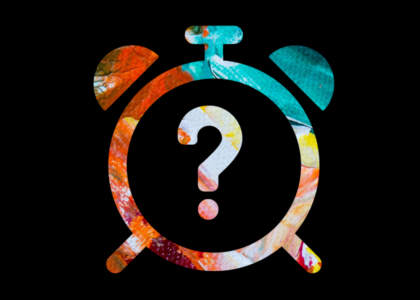There’s no better place to start than Presence. It is the foundation of the work we do at PurposeBuilt. Presence is both the modus operandi and the ultimate goal. It is the HOW and the WHY. I hope you noodle on that one for a moment.
What is Presence?
We define Presence as the skill of being fully engaged in the moment, aware of your thoughts, feelings, and surroundings without distraction. It is the ability to respond intentionally rather than reactively. It is the practice of actively participating in each moment of your life.
Not to be confused with executive presence, it’s not about commanding a room or projecting confidence. True presence is about deep, mindful awareness of the moment, from which you can then create meaning and momentum. (Pro tip: Executive Presence comes with true Presence, but not the other way around.)
Why is Presence Important?
In a world full of distractions, our attention is our greatest asset. It shapes our experience and determines where we direct our energy and focus.
When we’re present, we’re open, less reactive, and more attuned to others’ needs.
In business, this sets apart true leaders. It helps you notice subtle signs of a shifting market or a struggling team member. It gives you the power to pause and evaluate strategies that others would simply overlook.
I had a client last year who spent most of his life diagnosed with ADHD.
For years, trouble paying attention and hyper-fixation on certain tasks created a state of chaos within his business.
We worked on two things: (1) introducing the idea that attention can be cultivated—it is not something your brain either has or doesn’t; (2) identifying root cause environmental stressors that created the coping strategy of ADHD.
Yes, we chose to question the status quo of a determined diagnosis.
We explored root causes of the origination of his ADHD, including an authoritative parenting structure that led to a lack of safety in the home.
The ‘aha’ moment: realizing that having a wide gaze across his environment was a saving grace for him as a child. It actually kept him safe in his earlier years—but his environment had changed, and this need was no longer present.
We dug into the nuances of where, when and how he best pays attention. He learned where the wide-attention span serves him, and where he can adjust his strategy.
When we got specific, we found that his attention span towards things that truly matter—taking care of his daughter, for example—is spot on. Yet when there is conflict in the business, his attention scatters and hyper fixation on unrelated tasks kicks in. Seeing these environmental differences began to take on new meaning.
This led us to rewrite narratives rooted in guilt and shame around his inability to focus—and created a level of power and participation in his day-to-day that he previously never had.
A Simple Practice: Do Your Dishes
You don’t have to become a Buddhist monk for this concept to be immediately useful.
Start small: Do the dishes with full focus. Don’t problem solve or project into the past or future—stay present with the experience.
You’ll get distracted, that’s natural. The key is simply to notice the distraction and bring your attention back.
Notice how many things take you out of presence in every moment…you’ll learn a thing or two about what’s going on in that mind of yours. 😉
That’s All for Now
Thank you for being on this wild evolutionary ride with me.
More to come very soon.
